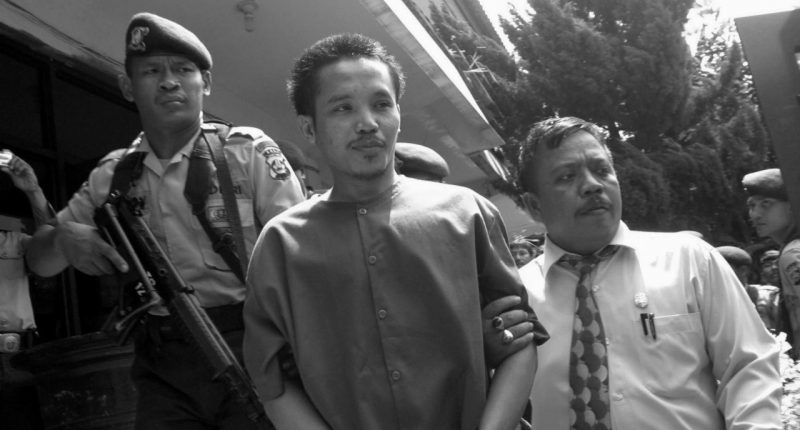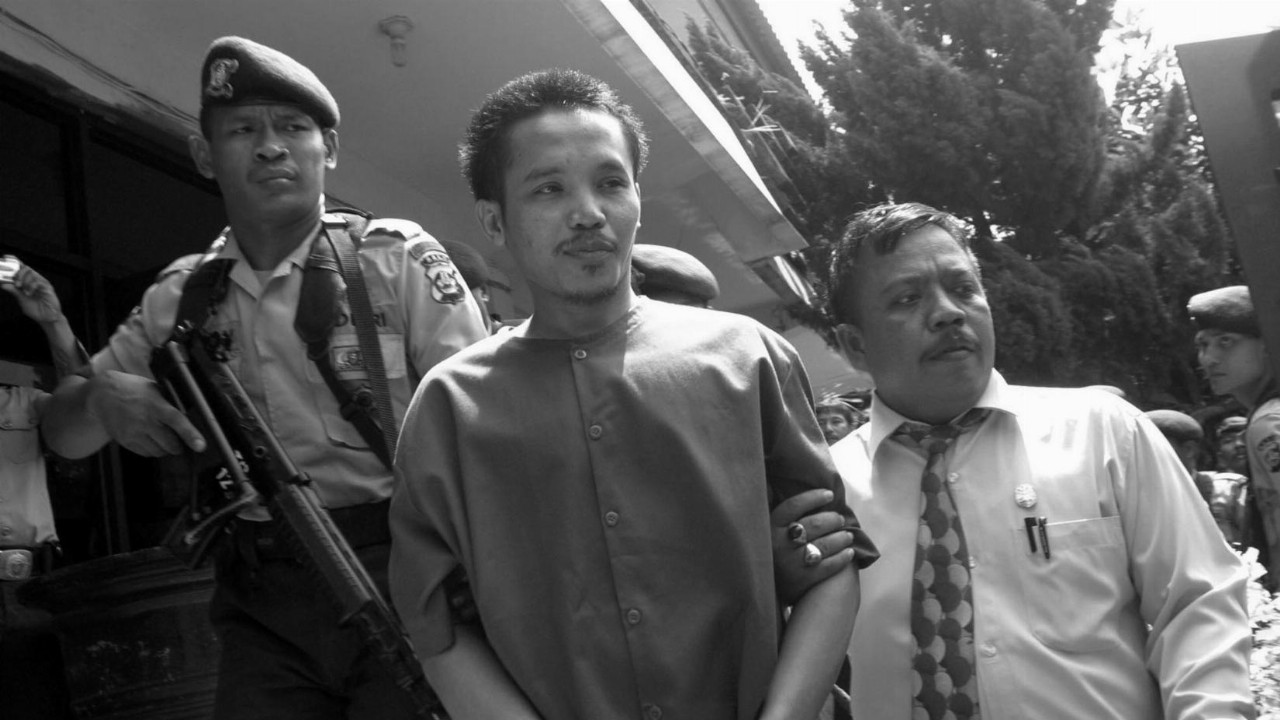In December, as Indonesia’s parliament approved a controversial new criminal code, something more ominous was afoot.
The revised code, widely condemned as a threat to democratic and human rights, encompasses a slew of archaic morality laws and speech restrictions, including banning sex outside of marriage, discriminating against religious minorities, and insulting the president. It highlights the rise of conservative Islam in the long-hailed moderate nation.
The reset — not to be implemented for three years — combined with distractions over next year’s presidential election, appear to have overshadowed the national security focus.
Significantly, in December, as the code was passed, a terrorist named Agus Sujatna launched a suicide attack at police headquarters in Bandung, West Java, killing himself and another and injuring 11. Attacks such as this are not uncommon in the nation’s hotspots, though the last major one was in 2018 after which there was a hiatus due to COVID-19 travel restrictions and lockdowns.
Sujatna belonged to the pro-Islamic State group, Jamaah Ansharut Daulah (JAD), which has launched waves of deadly attacks on mainly churches and police in past years. The Badung attack was the 14th suicide bombing since the heinous Bali bombings rocked the country in 2002.
What is particularly alarming is not which major groups — Islamic State-linked networks or the Al Qaeda-affiliated Jemaah Islamiah (JI) — are a threat, but the breed of extremists.
Sujatna was a recidivist. Convicted in 2017 for a terror act and released from prison in 2021, he was not monitored, paving the way for him to work freely at a pro-IS school.
He was one of more than 94 former terror convicts, or 11.4 per cent, who relapsed between 2002 and 2020, and one of a majority who refused to participate in jail deradicalisation programs.
Also noteworthy, Sujatna’s attack came a week after Islamic State in Syria exhorted supporters to wage jihad, a strategy long successful in incentivising followers.
Of deep concern is the number of reoffenders deported after attempting to join Islamic State in Iraq and Syria, and the scores of former recruits honing bomb-making skills and re-engaging with networks on social media while operating under the radar. The objective for an Islamic state has not waned.
Indonesia’s Supreme Court reveals 15 out of 40 returnee convicts tried to migrate for a second time, and in 12 cases they plotted further terror attacks over the four years to 2020.
In Sujatna’s case, counter-terror agencies in the world’s most populous Muslim-majority country had been tracking his online account on Telegram — an encrypted app favoured by militants — as he engaged with hundreds of ex-terror convicts encouraging him to launch an attack, who then celebrated in its wake.
Why wasn’t he intercepted? Considering police arrested 247 suspected terrorists last year and 339 in 2021, it’s risible that even the experts are confounded.
Yet the answer undoubtedly lies with the type of arrests. Although elite anti-terror squad Detachment 88 and the National Counter-Terrorism Agency (BNPT) have netted some big fish, too often most were minor charges under Indonesia’s revamped 2018 anti-terror laws permitting pre-emptive arrests.
Indiscriminate arrests are creating a vicious cycle: if minor offenders are not radicalised before jail they probably will be afterwards, with the chances of relapse proportionately high.
“The number of arrests doesn’t reflect the effectiveness of counter-terror efforts. There are a lot of layers to evaluate and huge networks to dismantle,” said Indonesian maritime security and counter-terror analyst Andi Raihanah Ashar, whose research reveals that since 2017, 700 foreign terrorists from Southeast Asia were Indonesian.
“The government shouldn’t be too satisfied. It didn’t prevent Sujatna’s attack in Bandung and it happened in a police station by a terror convict who refused to participate in a deradicalisation program. There are a lot of loopholes.”
Absurdly, while terror convicts can refuse to participate in deradicalisation programs, authorities are hamstrung in their efforts because the programs are not legally enforceable. Neither is monitoring after their release unless a prisoner is on parole. Indeed, the BNPT admitted it was challenging to monitor and stop deportees returning to their old habits. Why not revise the law to solve these systemic problems?
Still, the stigmatisation of participating in deradicalisation programs runs deep, and those who do are castigated as kafir (infidel). My interview with Ali Imron, the last of the Bali bombers’ inner circle, several years ago, attests to that predicament.
In jail, Imron is the government’s poster boy for rehabilitation: “I am labelled kafir by my own people. My blood is halal. It is legitimate to kill me,” he said, referring to Sharia law which remained instilled.
“I had to be involved (in the bombings) for the victory of Islam and I will continue with this goal.”
Former police chief Tito Karnavian confirmed Imron’s commitment: “He is still aiming at implementing Islamic sharia in Indonesia.”
And let’s see how Umar Patek, the Bali bomber released early from jail last year on the 20th anniversary of the 2002 Bali bombings, behaves. A former JI member, he had made the explosives used in the bombings. Authorities say he has reformed but if they are complacent about the possibility of a relapse, he will be a threat, warns Raihanah Ashar.
The tentacles of jihad are far-reaching. The longstanding practice of extremist networks and hardcore charities financially supporting convicts’ families outside prison maintains a connection, usually in return for proselytising. On release, former terrorists typically return to their radical support networks in a perpetuating cycle.
Despite the fall of the self-proclaimed caliphate in Syria and Iraq in 2019, global momentum continues. Indonesian terrorists’ use of fake travel documents and new identities to join IS abroad — of which police estimate about 500 have returned — expose gaps in Indonesia’s security to counter their mobility. The threat that they may join violent jihadi group Abu Sayyaf in the Philippines or travel to Syria remains.
While the government has made strategic progress on arrests and foiling bomb plots — including one targeting G20 leaders in Bali last year, as The Straits Times reported — age-old problems can expose loopholes available to militants. Lack of co-ordination between government institutions, weak law enforcement and immigration susceptibility to bribery are facilitating transnational terrorism across porous borders.
Since the pandemic, terrorist groups have refocused on building stronger networks, collecting funds and changing tactics. Particularly insidious is the revelation that JI operatives have been infiltrating state and religious institutions and political parties.
Irfan Idris, the head of deradicalisation at the BNPT, discussing three related arrests in 2021, said alleged JI members joined the organisations not to launch terror attacks but to slowly instil their ideologies in colleagues, Benar News reported last year. Detachment 88 has vowed to step up expansion and prevention strategies to deal with the new terror threat.
If that is startling, rising through the ranks are students from up to 67 JI-affiliated religious schools that police warn are breeding grounds for militants. Why are the schools still operating?
Despite the persistence by JAD, formed in 2015, and JI in inspiring radicalism and attacks, JAD’s attacks are relatively small-scale, unstructured, poorly funded and lack large-scale capability since the arrests of key leaders after 2018. JI’s strength, on the other hand, lies in its long-term structural strategy to overthrow the Indonesian government and establish an Islamic state — through violence, if necessary.
Outlawed in 2008, JI has not been disrupted. Since 2014, it has sent small groups to train in Syria to return with military expertise. But If JAD sends members to Syria, they stay there, says Alif Satria, researcher at the Centre for Strategic and International Studies (CSIS) Indonesia.
“The greatest threat for Indonesia would be a patient and organised terrorist organisation and I think that title still rests on Jemaah Islamiyah because this is an organisation that started in 1993 and has continued till now,” said Satria. “They have proven themselves to be able to recruit members and rebuild their structure in the past two decades.”
JI has shown it can not only conduct attacks but infiltrate key organisations, including the influential Indonesian Council of Ulama (MUI), the top Islamic scholar’s body, and most importantly they have revealed they’ve been able to implement restraint and discipline and rebuild, Satria added.
Between 2010 and 2020, while the government focused on pro-IS groups intent on church and police attacks, JI had been active, investing in palm oil plantations in Kalimantan (Indonesian Borneo) and on the island of Sumatra in 2019, while recruiting thousands of members and sending people to Syria for military training.
“That’s the threat Indonesia is facing — it’s not short term, it’s not JAD . . . its strategic foresight,” said Satria. Or terror by stealth.
While all eyes are on the alarming new restrictive laws, here’s hoping Indonesian counter-terror agencies will keep a commitment to expand and upgrade under the complex challenges of the evolving terror landscape.
Deborah Cassrels was The Australian’s first Bali-based correspondent and has written extensively on refugees, politics, terrorism, crime and social justice. She was nominated for a Walkley Award in 2016 for her work on terrorism in Indonesia. Her first book, “Gods and Demons”, a memoir about her journalism in Indonesia, was published in 2020.
Stay up to date on all the latest commentary, analysis and opinion pieces from Art of the Essay by following on Twitter, Instagram, Facebook and LinkedIn.





